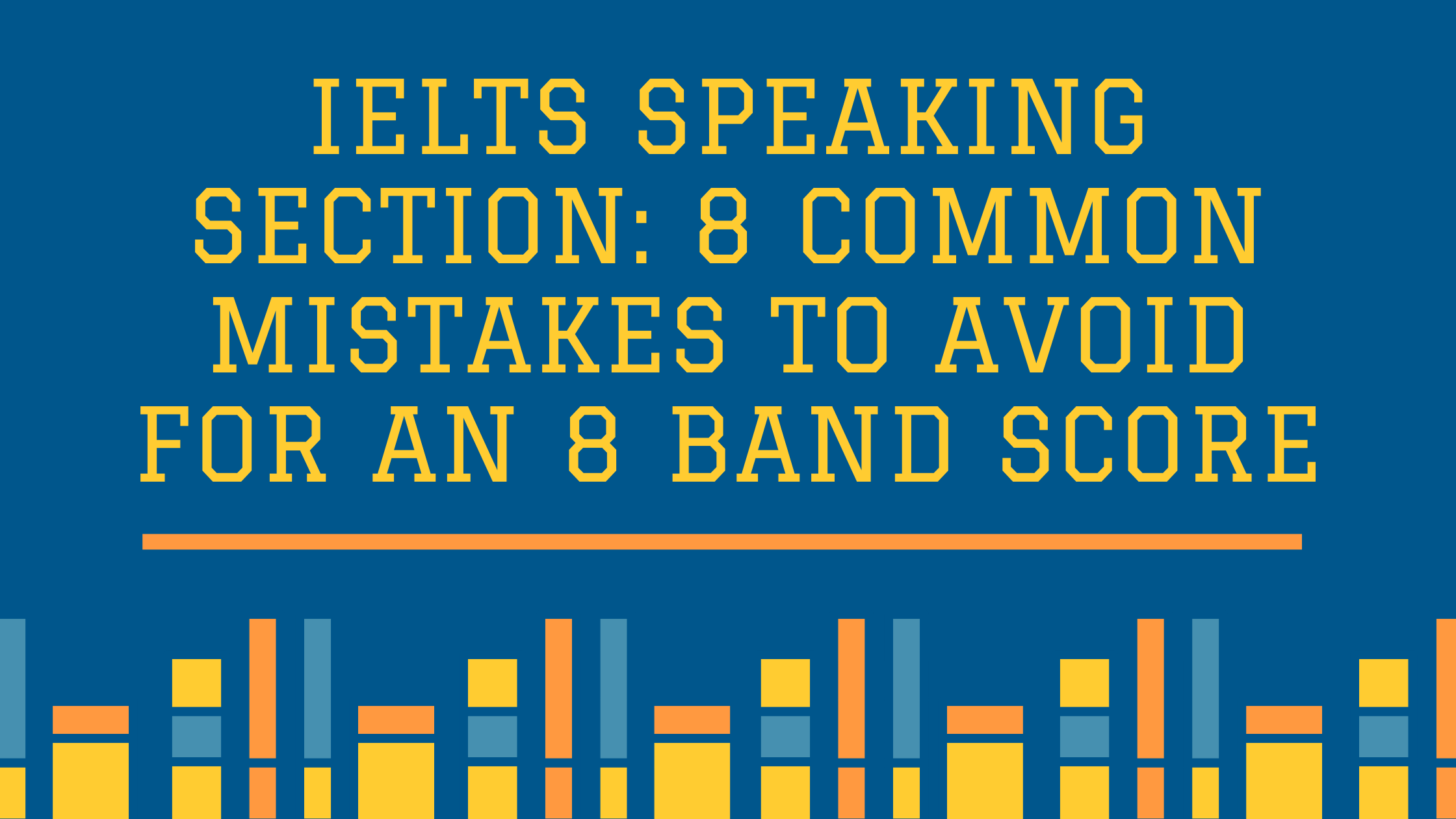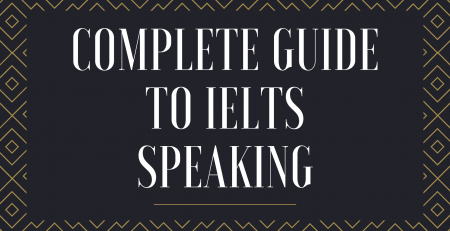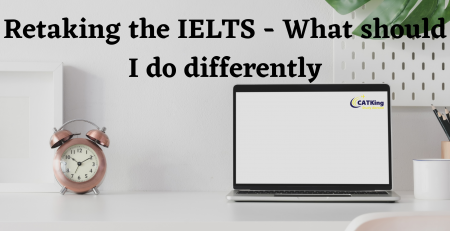IELTS Speaking Section: 8 Common Mistakes To Avoid For An 8 Band Score
IELTS Speaking Section: 8 Common Mistakes To Avoid For An 8 Band Score
Among most of the IELTS test-takers in India, there is a unanimous concern regarding the Speaking section. You’re not only required to speak confidently but there are a few important parameters that you must keep in mind such as grammar, vocabulary, diction, and syntax.
It is no surprise that this causes immense anxiety in students, especially since the IELTS Speaking Section is administered as a face-to-face interview.

But, before we dive into some important tricks & techniques to ace the Speaking Section, let’s understand some of the common challenges to watch out for.
Common Challenges In The IELTS Speaking Section
#1: Not knowing what to expect:
One of the gravest mistakes you can make is going to the test center not knowing what is coming. Before your test, make sure to thoroughly acquaint yourself with the test format and pattern by taking some practice tests, so that there are no nasty surprises on the exam day.
#2: Lacking confidence
The IELTS interviewers aren’t expecting you to be a brilliant orator. It’s more than enough if you talk as you normally would to a friend or colleague. That said, it is important to make good eye contact with the interviewer. And smile every now and then, and talk politely and courteously.
#3: Giving yes/no answers
The objective of the IELTS is to test your English language fluency, so it is necessary that you answer at least at some length and do not simply give monosyllabic answers.
If you’re asked where you’re from, don’t simply reply with Hyderabad.
Instead, say something like “I’m from Hyderabad, which is one of the major cities in Telangana. It’s a wonderful place, with a lot to see and do.”
#4: Going off-topic
Many students, in the midst of their interview, lose sight of the question asked and tend to go off on a tangent. Talking more is not the same as talking correctly.
Remember, the interview questions are usually straightforward and simple, and don’t need more than a 3-4 sentence long answer.
#5: Remaining silent
Giving no answer is much worse than giving a poor one—again, remember that these questions are about you— there is nothing you don’t already know. If there’s a word or phrase in the question you don’t understand, it is perfectly OK to ask the interviewer to clarify it, but choosing to give no answer will be seriously detrimental to your overall score.

#6: Memorizing answers
It is usually very easy to tell when a candidate has memorized his answers, and doing so is likely to reflect poorly on your scores since the interviewers are looking for spontaneity and the ability to respond correctly and quickly.
#7: Wrong pronunciation
A native-like fluency is not expected of you, but it is important regardless to only use words whose pronunciations you are confident about; otherwise, choose a synonym you can actually pronounce.
#8: Repeating the same word
One of the things the IELTS seeks to examine is the breadth of your vocabulary, and using the same word over and over again will not win you any favors.
For instance: I found *xyz* experience very interesting because it put me in touch with interesting people and interesting ideas.
Phew! That’s a long list.
But now that you know what to watch out for, read this 7 Genius Tips To Speak Confidently and Correctly!
















Leave a Reply
You must be logged in to post a comment.